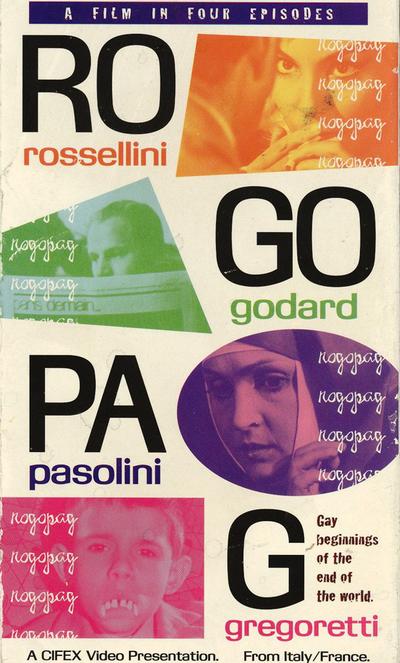Quote:
Scalera had obtained backing for a series of animal shorts and needed someone to make them. Roberto plunged in enthusiastically. He arrived at Ladispoli with animals of all sorts distributed among pockets and cages and started sixteen documentaries, no less, all at once. A slew of titles were annouced. La foresta silenziosa (“The quiet forest”), Primavera (“Spring”), Re Travicello, and La merca; and perhaps ll brutto idraulico (“The ugly plumber”). Fellini recalls finding Roberto at Scalera kneeling under small reflectors. “Inside a small enclosure made of nets and rope were a turtle, two mice, and three or four roaches. He was shooting a documentary about insects [La vispa Teresa?], doing one frame a day, very complex and laborious, with great patience.”
“He kept shooting for months,” Fellini adds, probably with his customary exaggeration. For in fact Roberto’s enthusiasm flagged quickly.Read More »
Roberto Rossellini
-
Roberto Rossellini – La vispa Teresa (1939)
1931-1940ArthouseFantasyItalian Cinema under FascismItalyRoberto Rossellini -
Various – Ro.Go.Pa.G. (1963) (HD)
1961-1970Amos Vogel: Film as a Subversive ArtFranceVariousQuote:
La Ricotta (starring Orson Welles) represents a key moment in Pasolini’s career. This complex work marks a stylistic advance over his earlier films and with it, Pasolini comes of age as a man of the cinema. Although La Ricotta is an outcry against the betrayal of religion, it was perceived as blasphemous by the right-wing homophobic political enemies of Pasolini. He was put on trial and charged with “insulting the religion of the state,” a Fascist law that was still on the books. Pasolini was sentenced to four months in prison, eventually amnestied, and all of RoGoPaG was banned. La Ricotta is a dazzling amalgam of trenchant social satire, neo-realism, pathos, and burlesque comedy by the man Susan Sontag has called “indisputably the most remarkable figure to have emerged in Italian arts and letters since the Second World War.”Read More » -
Roberto Rossellini – Era notte a Roma AKA It Was Night in Rome [Cannes 1960 ver.] (1960)
1951-1960ClassicsDramaItalyRoberto RosselliniThere are two versions of this film: the Italian theater version, and the extended version presented at Cannes 1960, both in Italian. This is the latter.
PLOT SYNOPSIS:
In keeping with his previous film Generale Della Rovere, filmmaker Robert Rossellini pursues a wartime theme in his “personal epic” Era Notte a Roma.
The story concerns three Allied POWS, who escape from their camp and hide out in Rome. The trio is given shelter by a beautiful young woman. With something tangible to fight over, the three prisoners’ national chauvinism (one is Russian, one English, one American) simmers to a boil.
For reasons which remain obscure, Era Notte a Roma was never given a widespread American release.
(Wikipedia)Read More » -
Various – Ro.Go.Pa.G. (1963)
1961-1970Amos Vogel: Film as a Subversive ArtArthouseItalyJean-Luc GodardPier Paolo PasoliniRoberto RosselliniUgo GregorettiVarious
Description: This consists of four short films by different directors. Rosselini’s ‘Chastity’ (‘Illibatezza’) deals with an attractive air hostess who receives the unwelcome attentions of a middle aged American. Godard’s ‘New World’ (‘Il Nuovo Mondo’) illustrates a post-apocalypse world the same as the pre-apocalyptic one but for an enigmatic change in attitude in most people, including the central character’s girlfriend. In Pasolini’s ‘Curd Cheese’ (‘La Ricotta’), a lavish film about the life of Jesus Christ is being made in a poor area. The impoverished people subject themselves to various indignities in the name of moviemaking in order to win a little food. Finally comes Gregoretti’s ‘Free Range Chicken’ (‘Il Pollo Ruspante’) in which a family of the materialist culture inadvertantly illustrate the cynical, metallic voiced doctrine of a top sales theorist.Read More »


